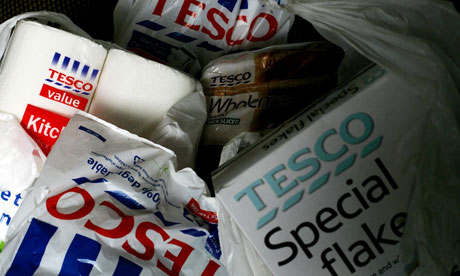Posts Tagged ‘Sustainability’

One of the popular definitions of policy reads as “a statement by government – at whatever level – of what it intends to do about a public problem” (Birkland, 2010, p.9). Accordingly, the issues of policy process are mainly discussed in the literature in relation to government policies. Tesco packaging policy is based on the following five key principles: being fit for purpose, using the lightest materials in terms of weight, using materials from the most sustainable sources, maximising the opportunities for recycling and recovery, and designed in a way that the lowest carbon impact can be achieved (Waste and packaging, 2012, online). According to Peters (2009) the Stages Model of Policy Process consists of the following stages: issue emergence, agenda setting, alternative selection, enactment, implementation and evaluation. All of these stages can be analysed in an individual manner in relation to the packaging policy of Tesco. Issue emergence of the policy process is an initial stage when specific problems are identified that need to be dealt with. Issues that require the introduction of relevant policies may arise fuelled by a wide range of reasons such as disasters, or any other dramatic changes. In terms of Tesco packaging policy this stage corresponds with increasing role of corporate social responsibility (CSR) aspect of the business in general, and the level of ‘greennes’ in particular. In other words, defined as responsibilities of business towards society apart from profit maximisation (Blowfield and Murray, 2008), CSR has emerged as a crucial aspect of the business to be dealt with by Tesco. The agenda setting stage of policy process corresponds with the issue growing to an extent that it requires immediate and due attention. It has been stated that “agenda setting occurs when the key players focus on an issue problem, which can be…
January 2, 2013
By John Dudovskiy
Category: Corporate Social Responsibility
Tags: Ethics, Retail, Sustainability
